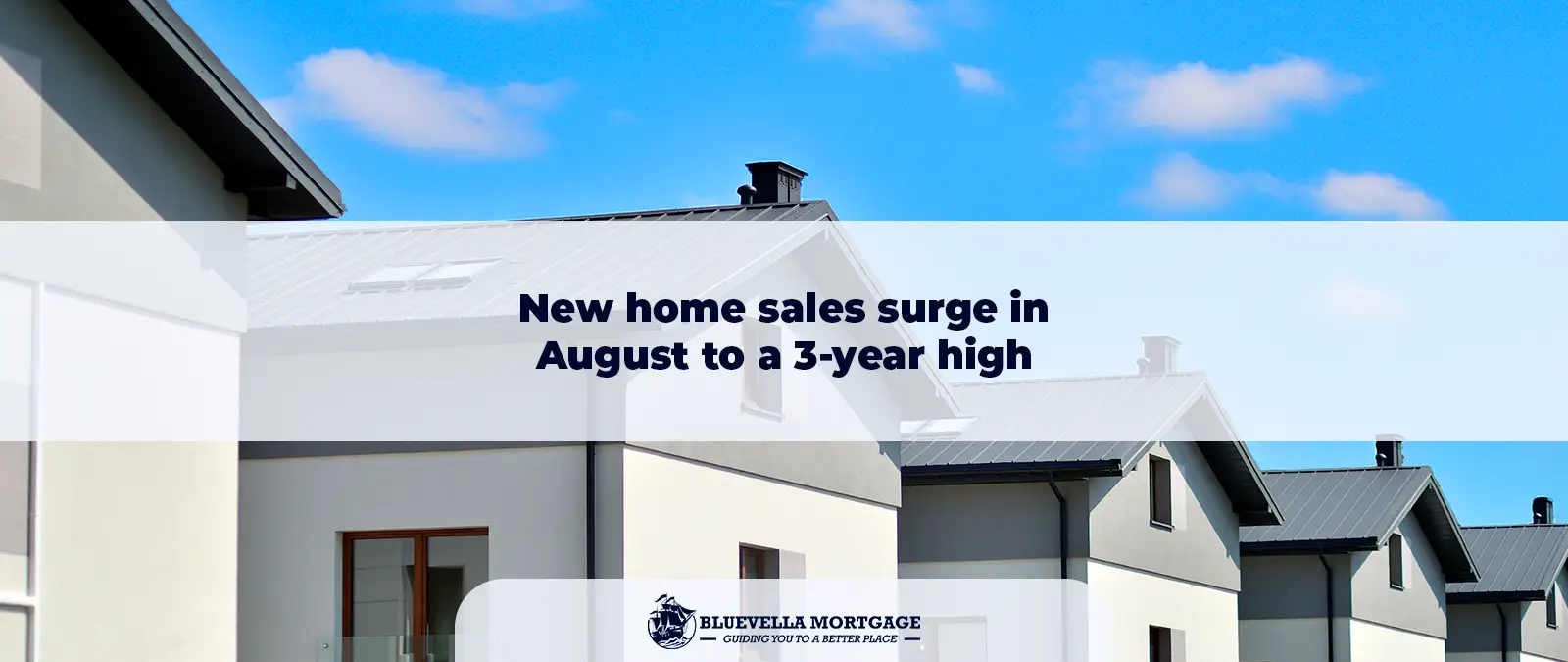Introduction: The Current Rental Landscape
The rental market has undergone significant changes in recent years, influenced by various economic and social factors. As of recent statistics, nearly 60% of renters express a desire to transition to home ownership by September 2025. This desire stems from shifting motivations that include economic conditions, social changes, and the lasting impacts of the COVID-19 pandemic on housing preferences. The most urgent concern among many renters is the rising cost of living, which has resulted in higher rents and increased competition for available rental units.
During the peak of the COVID-19 pandemic, many individuals reassessed their living situations, leading to a trend towards remote work and a desire for more spacious accommodations. Consequently, this has fueled a heightened interest in homeownership, as many renters yearn for stability and the ability to invest in their living spaces. Homeownership is often perceived as a path towards financial security and autonomy, further driving the interest among current renters.
The current rental landscape is characterized by low vacancy rates and increased demand, leading to higher rental prices across many markets. As a result, many potential home buyers are feeling pressured to enter the housing market before prices escalate further. This urgency is compounded by the increase in mortgage rates, which may deter some from purchasing a home, adding complexity to their decision-making process. Economic forecasts suggest that while the rental market remains robust, conditions may ultimately favor those capable of transitioning to homeownership within the next few years. Understanding these dynamics is critical to comprehending the motivations driving renters toward buying homes, as they strive to optimize their financial futures in an ever-evolving market.
The Psychological Drivers Behind Homeownership
The desire for homeownership is deeply rooted in psychological factors that reflect the aspirations and values of individuals. A significant driver for many renters is the quest for stability. Homeownership often symbolizes financial security and contributes to the overall sense of permanence in one’s life. This sense of security is particularly poignant during uncertain times, such as those experienced during the pandemic. The need for a stable environment where individuals can establish roots has intensified, leading to an increased appetite among renters to transition into homeowners.
Furthermore, the concept of personal investment plays a crucial role. Many renters view buying a home not only as a shelter but also as a means of investment. This perspective reflects a desire for a vested interest in one’s living space, framed within the belief that property ownership can lead to financial growth over time. In light of recent economic trends, where the real estate market has shown resilience, this notion has gained traction as renters evaluate their long-term financial plans.
Societal perceptions also heavily influence the drive towards homeownership. Owning a home is often seen as a milestone that carries a sense of accomplishment and status. Historically, the culture around homeownership has instilled the idea that owning property is a fundamental aspect of the ‘American Dream.’ These societal norms have evolved with changing demographics and values, yet the aspirational nature of owning a home remains entrenched in the collective consciousness.
Additionally, the pandemic has shifted lifestyles, prompting renters to reassess their priorities and living situations. As remote work became more prevalent, individuals began to focus on finding homes that resonate with their needs, emphasizing the importance of space and comfort. These psychological aspects combined reveal a significant trend: a growing number of renters are keenly motivated to achieve homeownership as a means of fulfilling their personal and financial aspirations.
Economic Factors Fueling the Desire to Buy
The current landscape of the housing market is significantly influencing renters’ ambitions to transition into homeownership. As of late 2023, interest rates have been a pivotal economic factor for renters contemplating buying a home. Historically, lower interest rates have made mortgages more accessible, subsequently increasing the buying power for many potential homeowners. However, even with fluctuations, current rates are still perceived as favorable compared to the soaring prices of rent in many urban areas. Consequently, many renters are finding that monthly mortgage payments could be more manageable than their existing rental obligations.
Another factor that is fuelling this desire is the ongoing trends in the housing market. The supply of homes has been relatively constrained in many regions, which has resulted in heightened demand and increased competition among buyers. This situation has led to a sense of urgency, driving renters to expedite their home-buying journey before property prices escalate further. Additionally, some renters are observing a shift in housing preferences, with many seeking single-family homes over multi-family units due to lifestyle changes catalyzed by the pandemic.
Inflation presents another layer of complexity, as rising costs of essential goods and services may compel renters to seek stability through homeownership. Owning a home can mitigate the unpredictable nature of inflation on rental prices, providing a sense of financial security. Simultaneously, government policies and incentive programs designed to assist first-time homebuyers are increasingly accessible. These initiatives, including grants and favorable loan conditions, alleviate the financial burden associated with purchasing a home, positioning it as a viable alternative to renting. Collectively, these economic factors underscore the motivation behind the renters’ pressing desire to transition into homeownership, especially as the September 2025 timeline approaches.
Demographics of Renters Looking to Buy
The current housing market reveals a significant shift in the attitudes of renters toward homeownership, with nearly 60% expressing a desire to purchase a home by September 2025. To better understand this trend, it is essential to analyze the demographics of these potential buyers, considering factors such as age groups, income levels, and geographical distribution.
Age plays a fundamental role in the inclination to transition from renting to owning. Primarily, younger adults, particularly those in the 25 to 34 age range, represent a substantial portion of the interested renters. This group, often burdened with student debt and fluctuating job security, has sought the stability that homeownership provides. Conversely, older renters, specifically those aged 35 and above, are also showing interest, driven by the pursuit of long-term investments and family stability.
Income levels further delineate the demographics of these aspiring buyers. A significant number of potential homebuyers fall within the middle-income bracket, indicating that financial feasibility remains a critical catalyst for their decision. Additionally, many are actively seeking homes that align with their financial capability, highlighting the importance of affordable housing options in meeting this demand.
Geographically, there is variance in the desire for homeownership among renters. Urban areas with higher living costs often see renters looking to purchase homes in the suburbs, where property prices may be more accessible. This demographic shift is indicative of a broader trend, where individuals prioritize longer commutes in exchange for more favorable housing opportunities, thereby expanding their options for ownership.
Understanding these demographic factors is vital for stakeholders in the real estate market, as they shape the landscape of homeownership interest among renters. By acknowledging the insights derived from these trends, strategies can be developed to facilitate the transition from renting to owning, ultimately benefiting both prospective homeowners and the housing market.
Renters’ Concerns Regarding Home Buying
As the housing market evolves, many renters are expressing a desire to transition to homeownership. However, this shift does not come without significant apprehensions. A prominent concern among renters is the potential instability in job security. In an unpredictable economy, individuals may hesitate to commit to a mortgage, fearing that sudden changes in their employment status could jeopardize their financial stability. The prospect of a long-term investment like a home often feels daunting when job markets fluctuate, making it essential for renters to evaluate their employment prospects before making such a significant leap.
Another prevalent issue is the rising cost of home prices. Many renters are increasingly aware of the challenges posed by a competitive real estate market. With home prices continuing to escalate in many urban areas, the prospect of purchasing a home can seem out of reach for many individuals. This concern is compounded by the competition from other buyers, which often leads to bidding wars, further pushing prices beyond the typical renter’s budget. Consequently, the thought of entering the housing market becomes a point of stress rather than an opportunity, leading to hesitation.
Financial readiness also plays a critical role in the decision-making process for renters contemplating homeownership. Prospective buyers must consider the costs associated with purchasing a home, including not just the down payment but also closing costs, property taxes, and ongoing maintenance expenses. The complexities surrounding mortgages can be intimidating, and many renters feel ill-prepared to navigate these financial obligations. These concerns often lead renters to delay their home-buying aspirations, reflecting a need for greater financial education and resources aimed at demystifying the process of becoming a homeowner.
Real Estate Market Forecast for 2025
The real estate market is poised for significant transformation by September 2025, driven largely by a shift in the attitudes of renters. As nearly 60% of renters express a desire to transition to homeownership, this sentiment will undoubtedly influence market dynamics. Experts anticipate a notable increase in demand for housing, which will lead to various adjustments in market supply and pricing strategies.
One of the key factors in this forecast is the interplay between supply and demand. As more renters seek to buy homes, the competition for available properties is expected to intensify. This increased demand could place upward pressure on housing prices, particularly in urban areas where homeownership is already in high demand. Moreover, a limited supply of homes due to ongoing construction challenges may exacerbate this trend, creating a market environment that favors sellers. Consequently, renters may face increased competition and higher barriers to entry as they seek their first homes.
Another vital aspect to consider when analyzing the real estate market is the economic conditions leading up to 2025. Current inflation rates, employment statistics, and interest rates will play crucial roles in shaping consumers’ purchasing power and influencing their ability to obtain mortgages. An improving job market and stabilizing interest rates could make homeownership more attainable, encouraging renters to transition into buyers. Conversely, higher rates or economic instability could dampen these aspirations, impacting overall housing demand.
In conclusion, as we look ahead to September 2025, the real estate market is likely to witness heightened competition among potential buyers due to the growing interest in homeownership from renters. A careful analysis of supply and demand, coupled with broader economic conditions, will be essential in understanding the direction of the housing market during this pivotal period.
Options Available for Renters to Transition to Homeownership
The desire to transition from renting to homeownership has been increasingly common among renters, with nearly 60% expressing intent to purchase a home by September 2025. Several pathways are available to facilitate this significant life change. One of the foremost options is exploring different types of mortgage loans. Traditional fixed-rate mortgages are popular, providing a stable monthly payment over a set term, usually 30 years. However, adjustable-rate mortgages (ARMs) can offer lower initial rates that may appeal to first-time buyers looking to minimize costs upfront.
In addition to mortgage options, potential first-time buyer programs play a crucial role in easing the transition. Many states and local governments offer initiatives designed specifically for new homebuyers. These programs often feature favorable loan terms, lower interest rates, or grants that can significantly reduce the financial burden associated with purchasing a home. Renters should research eligibility requirements for these programs, as they can vary by location and usually target individuals with specific income levels or other criteria.
Another important consideration is down payment assistance options. Many individuals struggle with the initial costs associated with buying a home, particularly the down payment. Fortunately, various grants and loan programs are available that can assist prospective buyers in this area, helping to cover a portion of the down payment or related closing costs. This support can be a game-changer for renters looking to become homeowners sooner rather than later. For a successful transition to homeownership, it is essential for renters to carefully prepare financially, ensuring they have a stable income, a reasonable credit score, and a good understanding of their long-term financial commitments. By taking these proactive steps, renters can set themselves on a path toward homeownership that culminates in a more permanent living situation.
The Role of Real Estate Agents and Professionals
The transition from renting to homeownership is a significant step for many individuals and families. In this evolving landscape, real estate agents and professionals play a crucial role in guiding renters who aspire to buy a home. Their expertise not only facilitates the purchasing process but also empowers potential buyers to make informed decisions that align with their financial goals and lifestyle aspirations.
A skilled real estate agent brings invaluable insights into the local housing market, offering renters access to essential information regarding property values, neighborhood trends, and market conditions. By understanding the specific needs and preferences of their clients, these professionals can present suitable options that may have gone unnoticed otherwise. This personalized approach helps ensure that potential buyers do not just follow market trends blindly but rather find the home that truly fits their life.
Moreover, navigating the complexities of purchasing a home can be daunting. A proficient real estate agent provides guidance throughout the entire process—from identifying properties that match a buyer’s criteria to negotiating offers and finalizing contracts. Their familiarity with the required paperwork and procedures aids buyers in avoiding common pitfalls that can lead to frustration or financial loss. In addition, a real estate professional’s longstanding relationships with mortgage lenders, inspectors, and other industry contacts can streamline the buying process, making it more efficient and less stressful.
When seeking a good real estate agent, it is imperative to look for certain qualities. An agent should have a solid understanding of the local market, proven negotiation skills, and a strong record of client satisfaction. Furthermore, effective communication and responsiveness are essential traits that will enhance the overall experience. Ultimately, a qualified real estate agent serves as a trusted advisor, helping renters transition into successful homeowners.
Conclusion: Navigating the Journey from Renting to Buying
The trend indicating that nearly 60% of renters aspire to transition to homeownership by September 2025 highlights a significant shift in the housing market. The desire to purchase a home reflects a deep-seated wish for stability and investment in one’s future, as many individuals are beginning to recognize the long-term benefits of owning rather than renting. With rental prices steadily increasing and the real estate market evolving, this landmark change is emblematic of broader economic and social dynamics at play.
As renters contemplate taking this crucial step towards homeownership, it is imperative for them to arm themselves with knowledge and insights. Understanding the financial responsibilities involved in buying a home, such as mortgage costs, property taxes, and maintenance, can significantly aid in making sound decisions. Furthermore, potential buyers should consider exploring various buying programs and incentives that could ease the transition from renting to ownership. These resources can provide valuable support in navigating the complexities of the housing market.
Additionally, seeking professional assistance from real estate agents and financial advisors can prove beneficial as renters embark on their journey toward purchasing a home. These experts can offer tailored advice based on individual circumstances and current market conditions, ensuring a smoother transition into homeownership. It is essential for renters to remain informed about market trends, financing options, and other relevant information that can influence their purchasing decisions.
Ultimately, the road to homeownership may present challenges, but with the right preparation and guidance, renters can successfully achieve their objectives by September 2025. By taking proactive steps and staying informed throughout the process, they can turn their aspiration of owning a home into a tangible reality.
Follow us:
Know more about Bluevella Mortgage.




